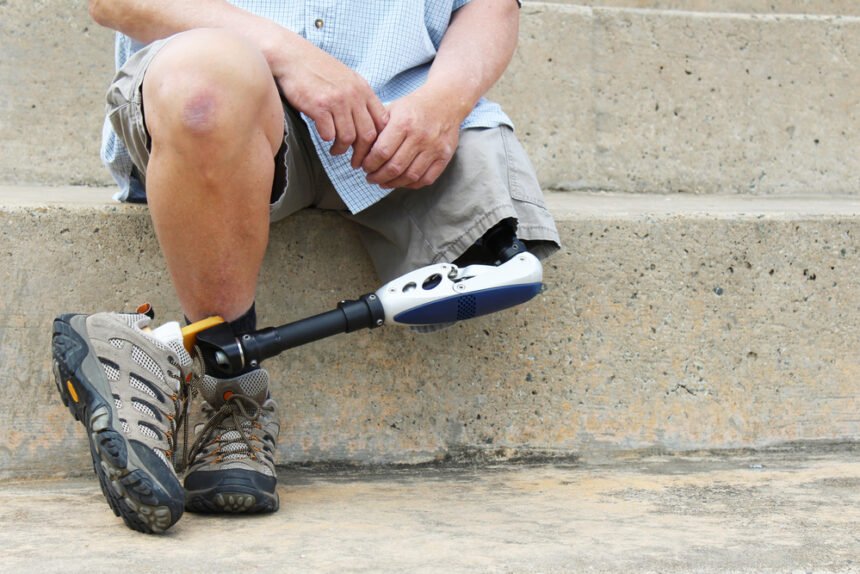Limb loss can happen for any number of reasons. While accidents can be the catalyst, there are also conditions that require amputation. Circulatory problems, injuries, cancer and birth defects are all common causes of limb loss or removal. No matter how it happens, the situation causes a lot of change and difficulty for the individual experiencing it.
Living without a limb is an ongoing adjustment process, which involves learning new things and performing tasks differently than before. However, with the right support and care, that process can be made easier and more comfortable. With physical therapy, medical care and mental health care, limb loss can be a bit less scary.
While it can feel like there’s a lot of information to study, learning is a part of the process. Each person and journey is different, and the information available about limb loss will apply to each patient differently.
Surgery
For many patients, limb loss begins with surgery. Within this process, the amputee has time to process the situation and prepare. If they happen to be going the route of prosthetics, they can choose their prosthetist before surgery, as they’ll be working closely with them to create prosthetic equipment that works best in their life.
During surgery, the surgeon will remove tissue, crushed bone and any other problematic elements, leaving only healthy tissue. After the surgery is finished, the patient will be bandaged and likely have their wound dressed in compression socks and elevated, or cared for in another way that the physicians see fit. Rehabilitation will be light and gentile, mostly focused on maintaining mobility in the other areas of the body.
Patients often stay in the hospital for up to 14 days, though the wound will take a few weeks to heal.
Physical Recovery
Physical therapy and rehabilitation are an important part of the healing journey. Occupational therapy and in-home care might be a part of the process as well. Rehabilitation is often long and can be frustrating, but it is designed to optimize mobility and allow the patient to heal. While the movements and exercises practiced in physical therapy will vary from patient to patient, they often involve stretching and mobility exercises that become more intense as the healing process continues and the patient is able to handle more activity.
Adapting
One of the more encompassing parts of losing a limb is learning to do things differently and adapting to life in new ways. Depending upon the limb lost, this can be different from person to person. Whether this process involves learning to walk on a prosthetic or learning to hold things in new ways, it can sometimes feel like a patient’s whole life is impacted by this change. Often, the use of mobility aids and other devices will help assist in the process.
While this process is ongoing throughout life and shapes a larger learning journey, the patient can also work with their physical therapist and other medical care professionals to find solutions for tasks both big and small.
Mental Recovery
The loss of a limb is a highly stressful life event for the patient. Everyone reacts differently to stress and trauma, and there’s no wrong way to feel. It can be perfectly natural to feel sad, angry, frustrated and uncomfortable. It’s important for the patient to take care of their mental health and well being. This can look like leaning on their support system, seeking mental health care or finding community in support groups or other common spaces so that they know they aren’t alone. Mental health can make all the difference sometimes, and that process deserves attention just like the physical healing process.
Phantom Limb
Residual Limb Pain, also referred to as phantom limb, impacts many people who have lost a limb. This feeling of pain and sensation in a limb that isn’t there anymore can be caused by a number of factors, from surgical trauma to normal prospective pain that patients often experience post-surgery. While this issue is common, there are also measures that patients can take to manage the pain.
Beginning physical therapy exercises as soon as possible, working with a doctor and medical team to address the issue and practicing relaxation techniques can all help to manage the phantom limb pain and sensation.
Prosthetics
Fitting for prosthetics usually happens two or three weeks after surgery. Many factors come into play when building and choosing prosthetics. Things like activity level, health concerns and cosmetic preferences are all important on some level. During the fitting process, the patient will often get a temporary limb to make adjustments based on their life and needs. This process might be long and repeated to ensure that the prosthetic is the perfect fit for the patient.
Adjusting to the use of prosthetics will be a large part of life going forward. No matter how well a prosthetic works or how accurately it fits and functions, little things will feel different about moving and performing tasks. Prosthetic training and practice is important, as it can help to bridge this gap and build new muscle memory.
Losing a limb is never easy, but with the help of trusted medical professionals and loving support systems, patients can find the care they need to push on and persevere, even in the difficult times.










